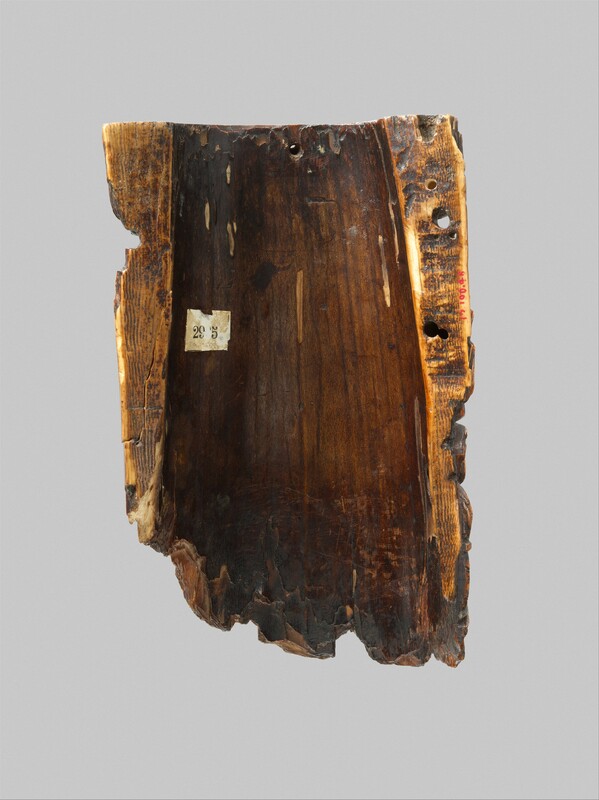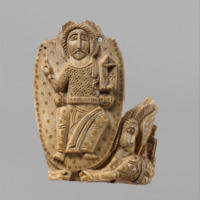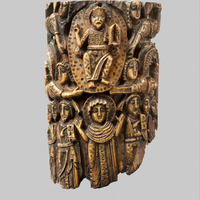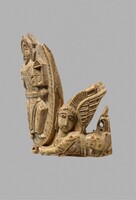Coptic Ascension ivories
Type:
Sculptures
Date:
ca. 810 to 1010
Location or Findspot (Modern-Day Country):
Egypt
Medium:
Ivory
Dimensions:
Larger tusk fragment (MMA 17.190.46), 19.7 × 12.5 × 6 cm,
Smaller tusk fragment (MMA 17.190.48), 11.7 × 9.8 × 3.3 cm
Description:
These two scenes of Christ's ascension to heaven (recorded in Luke 24 and Acts 1) were carved from elephant ivory, and they reveal the original shape of the tusks. On the larger piece, Christ in a mandorla is lofted by four angels while six apostles flank the orant Mary in the register below. The smaller piece duplicates the iconography of the upper scene on the other tusk, even such details as the cross pattern on Christ's tunic and the circled dots on his robe and mandorla. These patterns were probably shared among artists in a single workshop. Recent carbon-14 dating places both pieces in ninth- or tenth-century Egypt. They were thus made for Coptic Christians living under Islamic rule, likely for private devotion in a home or monastery.
Relevant Textbook Chapter(s):
5,
6
Repository and Online Resources:
• See the larger ivory tusk fragment on the website of the Metropolitan Museum of Art.
• See the smaller ivory tusk fragment on the website of the Metropolitan Museum of Art.
Image Credits:
Metropolitan Museum of Art




